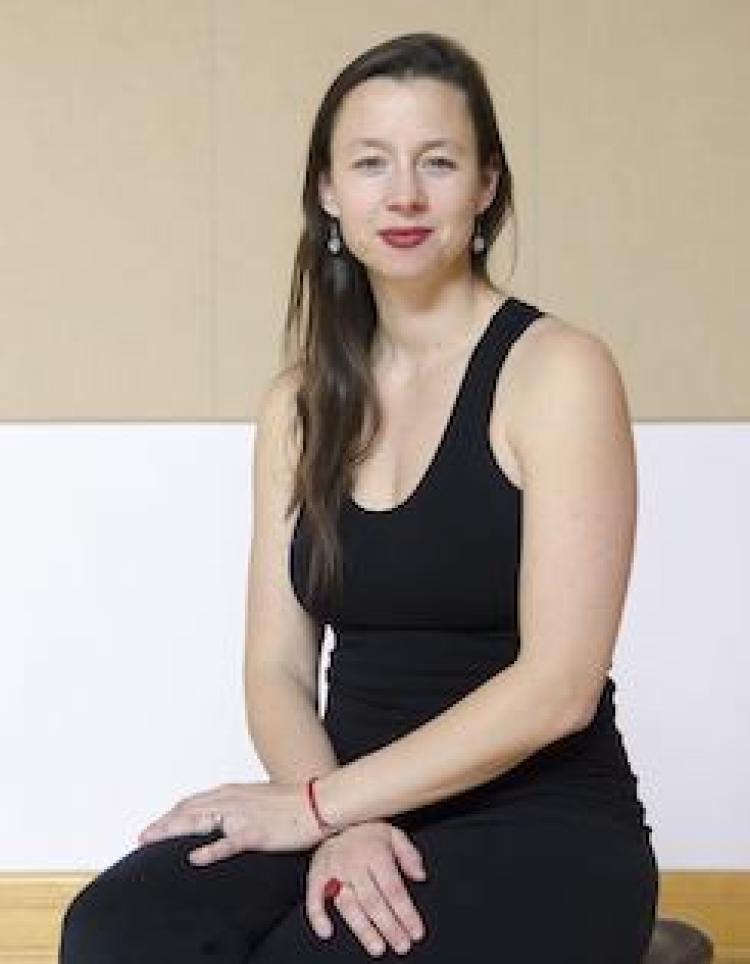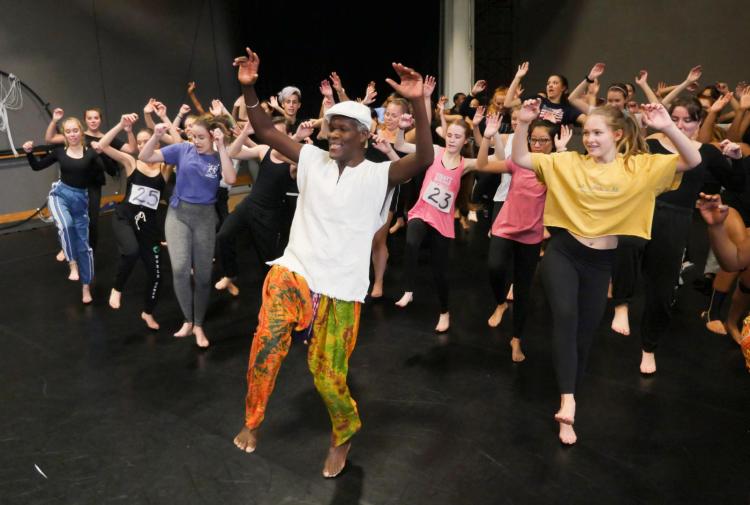CU Boulder dance program lauded for diverse curriculum
‘Systemic racism is a real problem in our country—and dance is uniquely positioned to help dismantle it,’ professor says
The University of Colorado Boulder’s dance program is one of four in the country committed to “dismantling white supremacy,” Dance Spirit magazine has declared.

Erika Randall
The publication’s fall 2020 edition, dubbed “The College Issue,” identified CU Boulder’s dance program as being especially committed to diversifying its dance curriculum.
Dance Spirit contends that most college dance departments focus on Western styles—ballet, modern, contemporary—rather than on the world’s other dance forms.
“Fortunately, some college degree programs have pledged to diversify their course offerings and to dismantle the layers of white supremacy that still pervade our art on a larger scale,” the magazine wrote.
CU Boulder’s Department of Theatre and Dance began working to address racism in dance 18 years ago, Erika Randall, chair of the department, said.
“We first began dismantling the ideas of level and ‘technique,’ offering instead a variety of styles that include Hip-hop, house, jazz and transnational fusion,” she told the magazine.
Randall, a dancer herself, noted that this approach buck’s tradition. She herself grew up dancing in a competition studio and then went on to a conservatory. She learned that ballet and “classical modern dance” were the basis of good technique.
She also recalled learning jazz dance early on, but, she noted, its origins in jazz music weren’t discussed. It wasn’t until she became a swing dancer, dancing and improvising to live music, that she started to see “gaps and misinformation” in her training.

Nii Armah Sowah works with area dancers during High School Dance Day in the Theatre & Dance department at the University of Colorado Boulder. (Photo by Casey A. Cass/University of Colorado).
“Those gaps have become more and more clear to me as I work with artists at CU who have shared their dances from Ghana and the Bronx, from North Africa and from Philadelphia,” Randall said.
One of the hardest semesters in her life was when she took Hip-hop dance with CU Boulder instructor Larry Southall, she said. Not only did her technique improve, but so did her capacity for teaching dance history and ballet, she said.
Such training yields a “faceted body” and able mind, she said, adding:
“Training across disciplines wakes students up to the truth that their lives have always been influenced by cultures and forms from all over the planet.”
Systemic racism is a real problem in our country—and dance is uniquely positioned to help dismantle it.”
“Classes that have in the past or in other programs been relegated to elective status are absolutely required here—not because of their diversity but because they are essential to training,” she continued. “We want to support the education of dancers who are going to become the problem solvers of our global experience.”
For example, African and, specifically, Ghanaian dance as taught by senior instructor Nii Armah Sowah is required for all majors. Students, both in the program and not, consistently report that it is one of their favorite classes.
Dancers who are accomplished in ballet might be frustrated as they strive to learn new forms of the art, she said. “But they learn a new virtuosity, a new relationship to speed and rhythm. … They find gravity and groundedness and a new connection to the earth that they had perhaps spent a lifetime trying to defy.”
Randall noted that CU Boulder’s dance faculty is diverse; half of the faculty are African or African American, “and yet we know we can do more to complexify and model difference to create more in-roads for new students.”
“Systemic racism is a real problem in our country—and dance is uniquely positioned to help dismantle it,” Randall said.
“Borrowing language from our swing-dance masters, we know that dancers can kick-ball change the world.”
CU Boulder Chancellor Philip DiStefano recently interviewed Randall, Southall and Helanius Wilkins, assistant professor of dance, in a video titled The Bridge, the Break and the Belonging. See it at this link.

